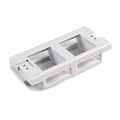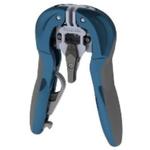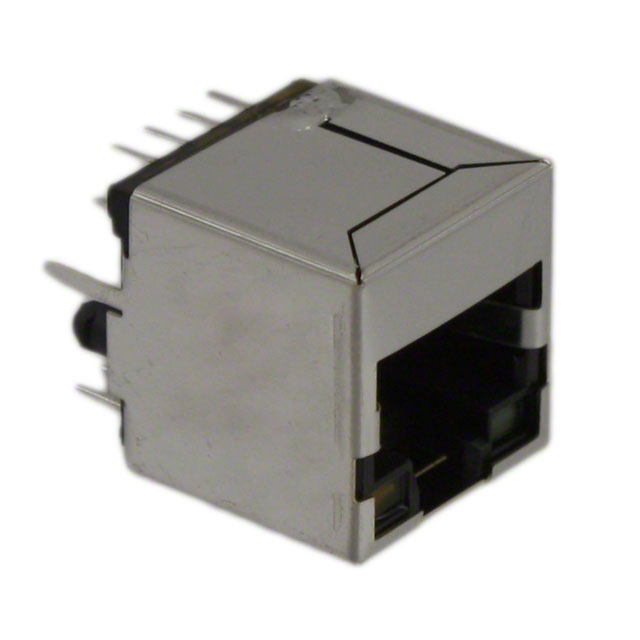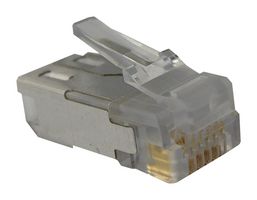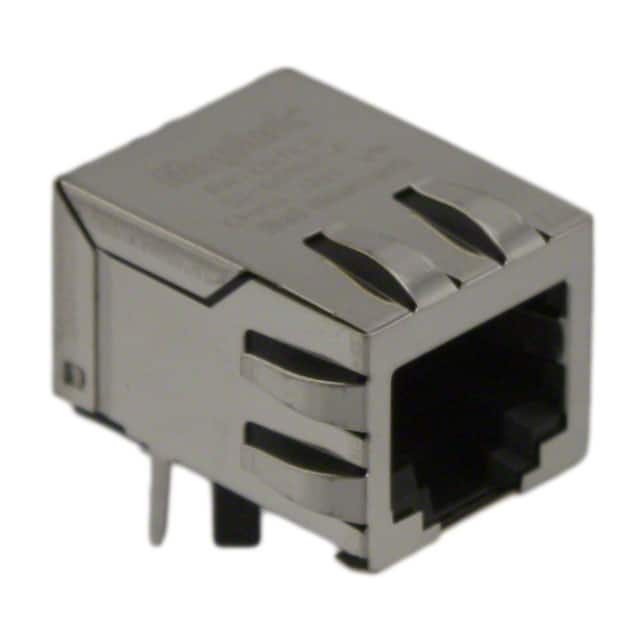Modular connectors are standardized electrical connectors used for telecommunications and data applications. Examples include RJ45, RJ11, and similar modular plugs and jacks. They form the physical interface for reliable signal and data transfer across various applications, including networking, telephony, industrial automation, and consumer electronics.
Online Components maintains a large inventory of modular connectors in the United States, offers fast domestic shipping, and authenticates suppliers to provide engineers and buyers with confidence when ordering. Our selection includes board-level jacks, panel mounts, modular plugs, as well as shielded and unshielded options, providing the spec-level details engineers need to match form, fit, and function.
How to Choose the Right Modular Connectors
Start with interface and pin count: 4P4C, 6P6C, 8P8C (commonly called RJ11, RJ12, RJ45) or vendor-specific variants. Confirm whether the signal is voice, Ethernet, or serial. Physical and environmental factors matter too. Shielded versus unshielded, mounting style (through-hole, surface-mount, or panel-mount), and operating temperature all affect electromagnetic interference (EMI) performance and long-term reliability.
Review lifecycle attributes and certifications, including mating cycles, contact materials, and plating (such as gold, tin, or nickel), as well as any industry approvals your application may require. Verify the datasheet dimensions, footprint, and mechanical tolerances to ensure compatibility with your assembly and production processes.
Popular Applications for Modular Connectors
Modular connectors are foundational to networking infrastructure, from office and data center Ethernet cabling to structured wiring in residential and commercial telephone systems. Industrial automation depends on ruggedized and shielded modular jacks for machine-to-machine communications, where noise immunity and durability are critical.
Pro-audio, point-of-sale systems, and consumer electronics use compact modular plugs and jacks for control signals, remote interfaces, and low-voltage connections. Telecommunications providers and installers rely on high-volume modular parts for patch panels, distribution frames, and field repairs.
Why Buy Modular Connectors from Online Components?
When uptime and schedule matter, Online Components' inventory, fast shipping, and authenticated sourcing reduce procurement risk and keep projects on track. We publish clear part-level documentation, downloadable datasheets, and real-time stock counts, so you can verify fit and availability before making a purchase.
Our technical and sales teams provide responsive support for questions regarding fit, form, and function. Our online ordering system facilitates both single-unit purchases and bulk orders, offering a straightforward checkout process. Search our modular connectors inventory, add in-stock parts to cart, and complete checkout to secure components quickly.
Modular Connectors: What You Need to Know
What's the difference between shielded and unshielded modular connectors?
Shielded connectors feature a metal shell or integrated shielding to minimize EMI, thereby enhancing signal integrity in electrically noisy environments. Unshielded options are lighter and lower cost for benign settings.
How do I confirm compatibility with an existing plug or jack?
Compare mating cycles, contact arrangement, and mechanical dimensions. Refer to the datasheet footprint and mechanical drawings to verify interchangeability.
Are there modular connectors available that are rated for outdoor or industrial use?
Yes, look for ingress protection (IP) ratings, rugged housings, wide operating temperature ranges, and corrosion-resistant plating. Those specifications are listed in product descriptions and datasheets.
Can I get custom cable assemblies with modular plugs already attached?
Many suppliers and contract manufacturers offer pre-terminated modular assemblies. Online Components can help you source compatible plugs and refer assembly partners when required.
What contact materials and plating are best for longevity?
Gold plating on contact surfaces is common for low contact resistance and long mating cycles, while tin or nickel can be acceptable for lower-cycle or cost-sensitive applications.
contact us
 English
English
 Chinese
Chinese
 Italiano
Italiano
 Portuguese
Portuguese
 Deutschland
Deutschland
 French
French
 Russian
Russian
 Japanese
Japanese
 Turkish
Turkish
 Korean
Korean
 Spanish
Spanish
